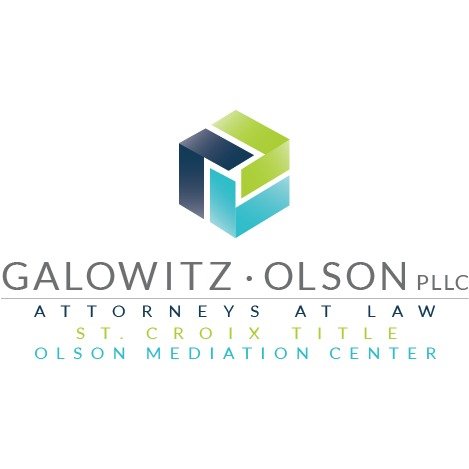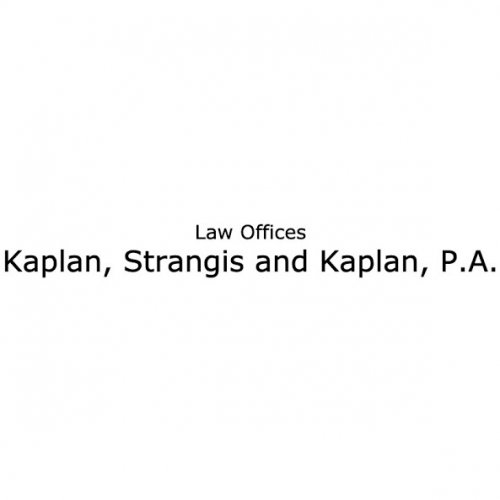Best Public-Private Partnerships (PPP) Lawyers in Minnesota
Share your needs with us, get contacted by law firms.
Free. Takes 2 min.
Or refine your search by selecting a city:
List of the best lawyers in Minnesota, United States
About Public-Private Partnerships (PPP) Law in Minnesota, United States
Public-Private Partnerships, or PPPs, are collaborative agreements between government entities and private sector companies. In Minnesota, PPPs are used to finance, build, and operate projects that serve public interests such as transportation infrastructure, schools, energy, and more. These arrangements help leverage private sector expertise and funding sources to deliver essential public services and facilities more efficiently. PPPs are governed by a mix of state statutes, federal guidance, and local government policies, making them complex but powerful tools for public development.
Why You May Need a Lawyer
Navigating a Public-Private Partnership can be tremendously complex due to the multiple parties involved, intricate contract structures, and compliance with overlapping regulations. Some common situations where legal assistance is crucial include:
- Drafting or negotiating PPP agreements between private sector entities and government bodies.
- Understanding and complying with Minnesota’s specific laws and procurement procedures for public projects.
- Resolving disputes, breaches of contract, or claims arising from PPP projects.
- Reviewing regulatory, environmental, and financial obligations involved in a PPP.
- Structuring financing or risk-sharing models to protect client interests and ensure long-term project sustainability.
- Ensuring adherence to labor laws, public transparency, and ethical procurement standards.
Local Laws Overview
Minnesota law provides a foundation for PPPs primarily through statutes that authorize specific types of public bodies to enter such arrangements. Key aspects include:
- Enabling Legislation - Not all state agencies and local governments have the same authority to enter PPPs, so it's important to confirm whether enabling legislation exists for a given project.
- Procurement Procedures - Minnesota public procurement laws, such as competitive bidding and best-value contracting, often apply to PPPs and must be closely followed.
- Transparency Requirements - The Minnesota Government Data Practices Act and open meeting laws require most PPP arrangements to be transparent and subject to public oversight.
- Financing - State law governs provisions like tax increment financing (TIF), bonding, and the use of public funds for private development, with additional oversight for large capital projects.
- Sector Specific Rules - PPPs for transportation, education, water, and broadband infrastructure each have their own statutory requirements and restrictions.
In practice, PPP laws in Minnesota can be project specific, so thorough legal vetting is essential for each partnership.
Frequently Asked Questions
What is a Public-Private Partnership (PPP)?
A PPP is a contractual agreement between a public agency and a private sector entity to deliver a public service or facility. The private partner typically shares in the risks and rewards of the project.
Are PPPs legal in Minnesota?
Yes, PPPs are permitted in Minnesota, but the authority to form a PPP depends on the type of government agency and existing enabling legislation. Some projects may require new legal authorization.
What types of projects can use PPPs in Minnesota?
Common PPP projects include highways and roads, public transit systems, government buildings, schools, water and wastewater infrastructure, and broadband networks.
How are PPP agreements structured?
PPPs are structured through detailed contracts specifying the roles, responsibilities, risk allocations, and financial arrangements between the public and private partners. They may involve concessions, leases, build-operate-transfer agreements, or joint ventures.
What are the benefits of PPPs?
Benefits include accelerated project delivery, access to private capital, innovation from the private sector, and risk sharing between the public and private participants.
What risks are involved in PPPs?
Risks can include delays, cost overruns, public opposition, potential legal disputes, and unclear risk allocation. Careful planning and legal oversight are needed to manage these risks.
Do PPPs require competitive bidding in Minnesota?
Most PPPs must follow Minnesota’s competitive bidding laws or best-value procurement processes, but there may be exceptions or special procedures depending on the project type.
How can local governments finance PPP projects?
Financing tools can include revenue sharing, user fees, tax increment financing, municipal bonds, or direct public funding, all subject to state law and fiscal limitations.
Is public input required in PPP projects?
Yes, public involvement and transparency are generally mandated through hearings, disclosures, and compliance with the Minnesota Government Data Practices Act and open meeting laws.
How long does setting up a PPP in Minnesota take?
The timeline can vary from several months to years, depending on project type, procurement methods, environmental review, and contract negotiations.
Additional Resources
If you are seeking more information or need legal guidance on PPPs in Minnesota, these resources can be helpful:
- Minnesota Department of Transportation (MnDOT) - For transportation related PPPs
- Minnesota Department of Employment and Economic Development (DEED) - For business and infrastructure PPP support
- Minnesota Management and Budget (MMB) - For public finance regulations and bonding information
- League of Minnesota Cities - For municipal project guidance
- Metropolitan Council - For large scale Twin Cities area PPPs
- Minnesota Statutes Chapters 16C, 429, 469, and other relevant laws covering procurement and public works
- Local economic development agencies and regional planning bodies
- Private law firms and consulting groups specializing in PPP legal services
Next Steps
If you need legal help with a Public-Private Partnership in Minnesota, the following steps are recommended:
- Identify your specific needs - Are you a government official, private developer, financier, or community stakeholder?
- Gather all relevant documents and information about your proposed or existing project.
- Research attorneys or firms in Minnesota with a proven track record in PPPs and infrastructure law.
- Schedule an initial consultation to discuss your objectives, concerns, and the scope of legal services required.
- Prepare questions about the legal, regulatory, and procedural issues relating to your project.
- Stay updated on changes to Minnesota statutes and regulations affecting PPPs.
A qualified PPP attorney can help you navigate the legal complexities, negotiate favorable terms, and protect your interests throughout the partnership process.
Lawzana helps you find the best lawyers and law firms in Minnesota through a curated and pre-screened list of qualified legal professionals. Our platform offers rankings and detailed profiles of attorneys and law firms, allowing you to compare based on practice areas, including Public-Private Partnerships (PPP), experience, and client feedback.
Each profile includes a description of the firm's areas of practice, client reviews, team members and partners, year of establishment, spoken languages, office locations, contact information, social media presence, and any published articles or resources. Most firms on our platform speak English and are experienced in both local and international legal matters.
Get a quote from top-rated law firms in Minnesota, United States — quickly, securely, and without unnecessary hassle.
Disclaimer:
The information provided on this page is for general informational purposes only and does not constitute legal advice. While we strive to ensure the accuracy and relevance of the content, legal information may change over time, and interpretations of the law can vary. You should always consult with a qualified legal professional for advice specific to your situation.
We disclaim all liability for actions taken or not taken based on the content of this page. If you believe any information is incorrect or outdated, please contact us, and we will review and update it where appropriate.
Browse public-private partnerships (ppp) law firms by city in Minnesota
Refine your search by selecting a city.









